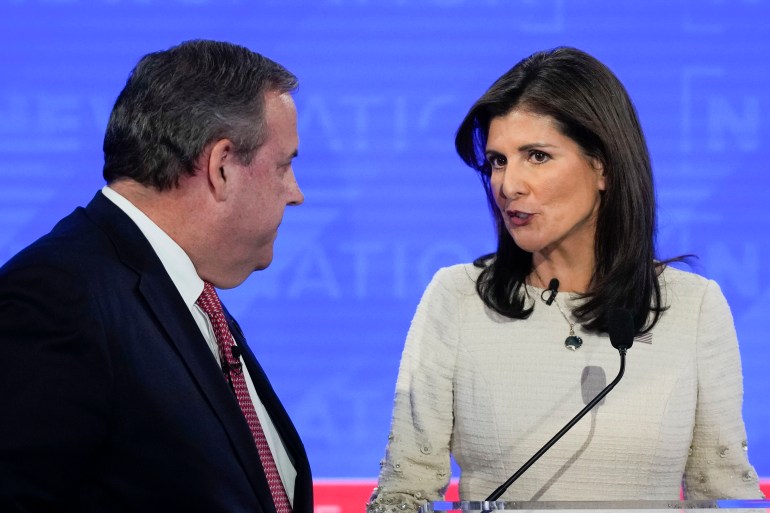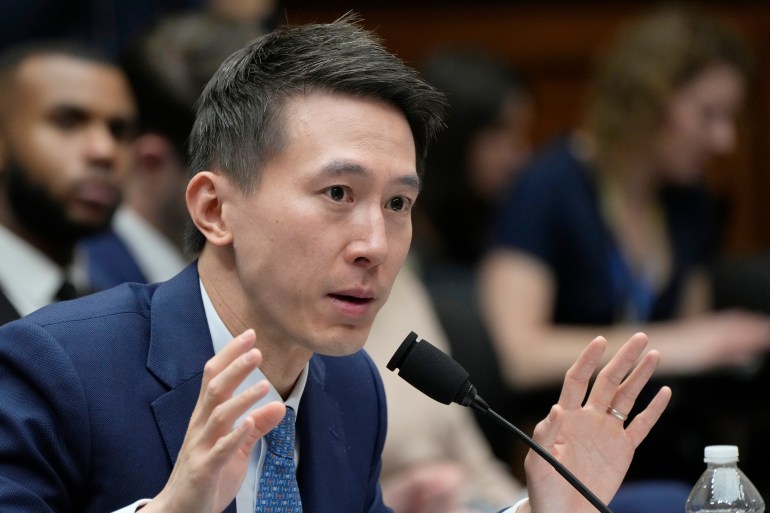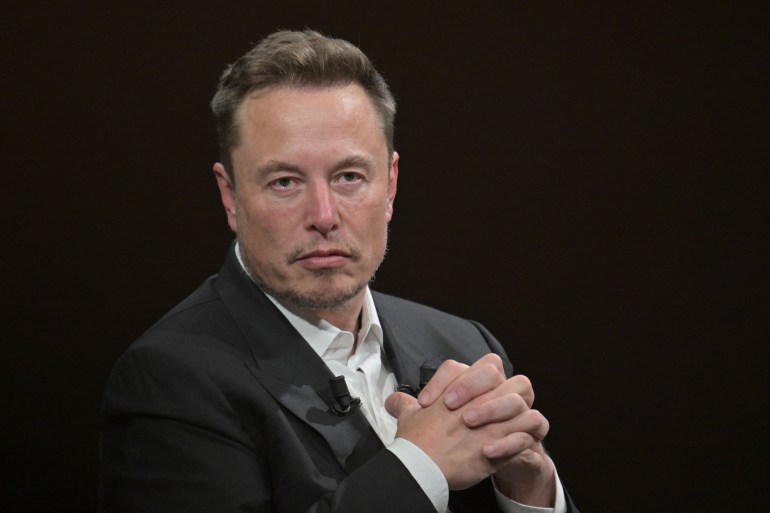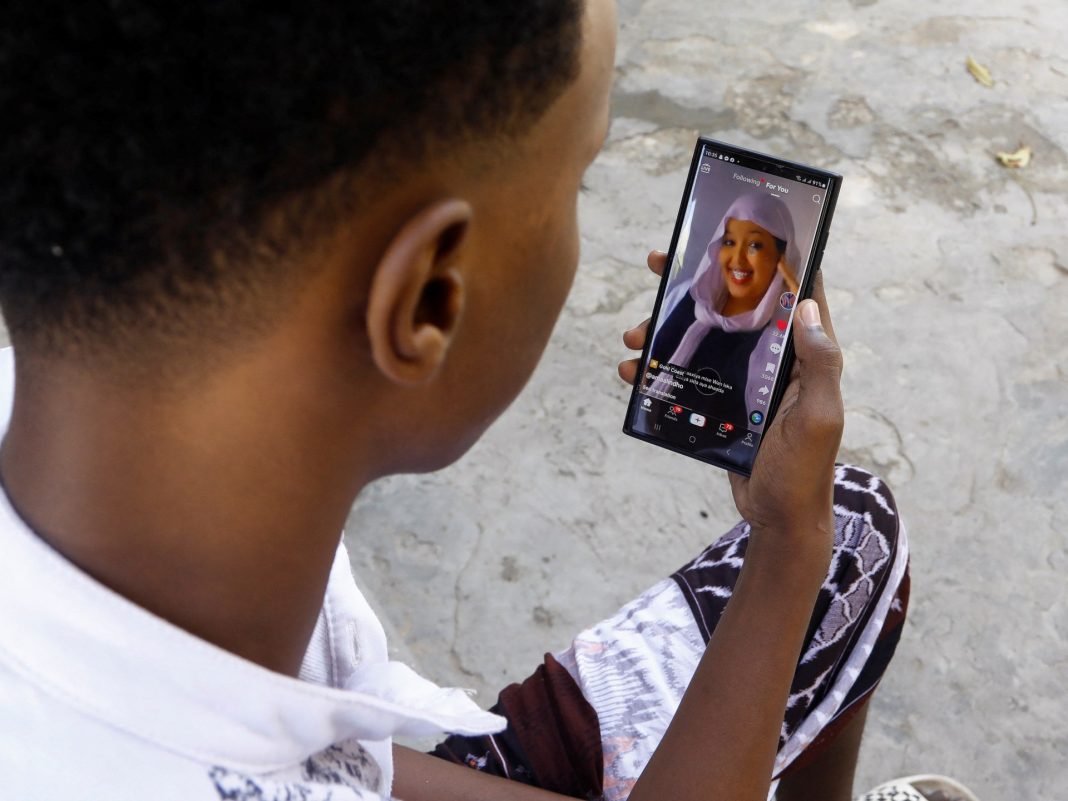Who owns the narrative? If United States lawmakers are to be believed, it is currently at risk of being hijacked by China, disseminated on de-facto spyware by impressionable youth swiping short-form videos in their bedrooms.
Official tutting at TikTok, owned by China’s ByteDance, is nothing new. The prospect of a ban has been looming for a while. In March, US senators introduced the Restrict Act, a bipartisan bid to give the president powers to boot it out of US cyberspace on national security grounds.
Israel’s war on Gaza has reignited the debate, with Republican presidential contenders accusing the platform not only of boosting pro-Palestinian content but of actively turning the nation’s youth into Hamas supporters. Every 30 minutes spent watching Tiktok makes people “17 percent more anti-Semitic, more pro-Hamas”, said Nikki Haley at a presidential primary earlier this month, misinterpreting survey data.

Some other countries have already banned TikTok, led by India, which barred the app in 2020 after border clashes with China. But the debate in the world’s leading media market, which has unparalleled global reach, to banish one of the only tech behemoths that is not from Silicon Valley in the midst of a global infowar raises crucial questions about how narratives are managed, say experts.
Who’s doing the censoring?
The drive to ban TikTok was turbo-charged by an echo from the relatively distant past. After Israel launched its war on Gaza on October 7, young American TikTokers looking to understand US involvement in the Middle East appear to have unearthed Osama Bin Laden’s post-9/11 Letter to the American people. It had been gathering dust on the Guardian’s website – now it sparked a decontextualised memeathon on US imperialism.
The furore over Bin Laden’s resurrected tract, which does repeat classic anti-Jewish tropes about Jews controlling “your policies, media and economy”, only served to increase interest in his strident critiques of US foreign policy. Shocked to discover episodes like the 12 years of deadly sanctions imposed by the US on Iraq before it invaded in 2003 as part of the disastrous “War on Terror”, young Americans were now seeing their country’s support for Israel’s war on Gaza in a new light.
TikTok responded swiftly, “aggressively” removing the content.
The Guardian took down the Bin Laden letter after it became their top-trending article.
TikTok’s motives were likely about keeping its foothold in the lucrative US market, says Michael Kwet, a visiting fellow at Yale Law School’s Information Society Project. As a foreign entity, it has come under intense pressure from lawmakers, its CEO facing a grilling in Congress earlier this year, which accused the app of being a “Trojan Horse” for Chinese influence.

“TikTok wants to keep the gravy train rolling,” says Kwet. “There’s no reason to believe TikTok will offer substantially more diverse views across the global media landscape … When confronted with content moderation decisions, TikTok will do what all big social media companies do: remove content at the request of entities with power, so long as it becomes too costly to disobey.”
The problem, in his view, is corporate ownership of platforms beholden to the governments that regulate the markets.
How is the flow of information controlled?
The ability of governments, corporations and powerful interests to direct the flow of information has come under greater scrutiny in recent years. Last year’s release of the so-called “Twitter Files” drew the interest of those seeking to understand infiltration into the engine rooms of social media.
However, the findings came with a caveat. Billionaire Elon Musk, at that time positioning himself as a champion of free speech after his takeover of Twitter – now known as X – had carefully curated the documents to endorse his own right-wing grievances about liberal bias under previous owner Jack Dorsey.

Much of the story, told by handpicked journalists, fixated on the insular dynamics of US politics. And while the reveal was only partial, it was nonetheless damning, proving how the US government and security services systematically pressured the platform to suppress, moderate and amplify.
But when it comes to the US’s power to warp the narrative beyond its borders, the smoking gun was provided by communications from CENTCOM, the central command unit at the Pentagon, which repeatedly got Twitter to promote certain accounts to boost its influence overseas, infecting the stream of information as far afield as Yemen and Syria.
If, as the Twitter Files demonstrated, Silicon Valley giants like Meta, Instagram and even X are already working with the US government, the TikTok affair illustrates how easily foreign contenders that theoretically have the potential to broaden global discourse can effectively be made to kneel when the profit motive is wielded, say analysts.
“At the end of the day, it’s kind of worse because TikTok was being more compliant than they had to be,” says Nadim Nashif, the director of 7amleh, a non-profit promoting Palestinian digital rights which has highlighted cases of “shadow banning” of pro-Palestinian content on platforms.
What impact is this having on the world?
The land of the First Amendment is not alone in erecting digital walls, even if its ability to build global tunnels of influence is greater. Having repeatedly berated countries like China, Russia and Iran in their attempts to stifle uncomfortable narratives to serve purported national security interests, the US stands accused of double standards.
But virtue signalling aside – from all sides – a much bigger tit-for-tat geopolitical battle is being played out on the corporate terrain. That battle begins at home. US intolerance of TikTok is predicated on ensuring tech platforms not answerable to its diktats do not gain a foothold in a domestic market with global reach. China, its biggest economic rival and the home of TikTok, has done the same, creating a controlled space by blocking Google and Facebook.
On questions of privacy, there is not much to choose, say experts.
“All of it is spyware. When you install X, Facebook, Instagram or TikTok on your phone, it is spyware, whether it’s American or Chinese. That’s all it is. Pure and simple,” says Dina Ibrahim, a professor of broadcast and electronic communication arts at San Francisco State University.
Amid all this, it is the vulnerable who suffer, says Nashif. “You can see it in a very clear way, when we talk about weaker, indigenous communities in the Global South. We can see it in Kashmir because obviously, they [social media platforms] will think twice before targeting the Indian government. We can see it when we talk about the Rohingya Muslims in Myanmar. You can see it when we talk about the Palestinians.
“We can see it in these communities that don’t have enough power, that don’t have somebody standing behind them and pushing.”

When it comes to Palestine, examples are not lacking. Whether it be Meta-owned Instagram’s automated translation tool adding the word “terrorist” to the biographies of Palestinian users – a problem for which it later apologised – or Whatsapp, also owned by Meta, answering prompts regarding Palestine with illustrations of kids with guns.
Digital rights groups, including 7amleh, have accused the world’s biggest digital platforms of content takedowns, account restrictions and hashtag suppression.
Is this just algorithmic misfire, inadvertently fanning the flames of a violent conflict that has aroused global passions – or is it part of something bigger?
Can balance be restored?
In this asymmetric infowar, experts say the poorest and the most disenfranchised suffer. So, is there any way the imbalance can be corrected?
“That’s the billion-dollar question,” says Nashif.
The question, it seems, has to be directed at the biggest digital power of them all. But, Kwet says, the opinion-forming elites are looking the other way. “Imperialism is embedded in the minds of the US-European intelligentsia. When digital colonialism issue is discussed, it’s at the margins, and in abstract terms, a form of virtue-signalling to show that you’re hip to ‘decolonisation’,” he says.
When it comes to vulnerable communities in the Global South, only people on the ground can break the paradigm, he thinks.
“Genuine opposition to digital colonialism seeks to break down digital capitalism and build a tech economy by and for the people. There would be no single, centralised network for those with power to influence and control. The technology needed to make it a reality already exists, but it will require a global solidarity campaign to scale it up.”
For now, we have X, Instagram, Facebook and TikTok. “They’re engineered for misinformation. They are engineered so that you, the reader or the viewer seeking information, are deliberately fed what you already believe,” says Ibrahim.







